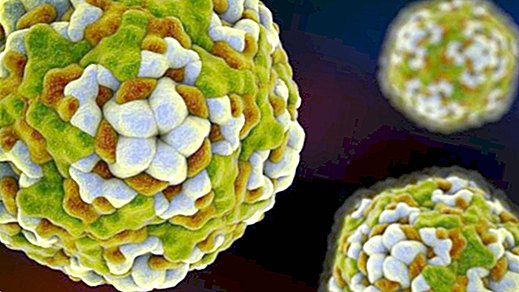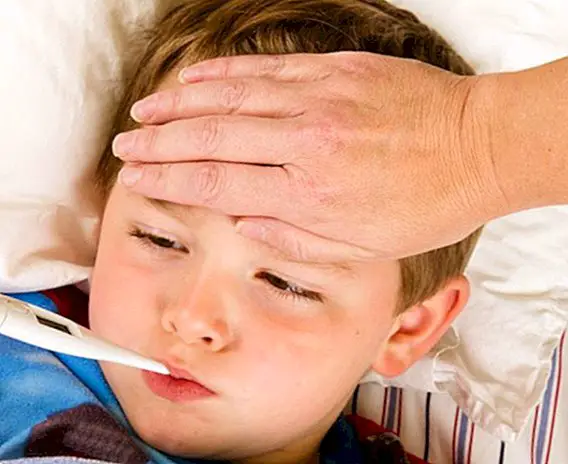Enterovirus D68: what it is, symptoms, causes and treatment
Some months ago we knew that 48 children were affected in Catalonia (Spain) of enterovirus, a tremendously common virus that actually every year usually affects especially millions of children around the world, being very common especially during the months of spring, summer and autumn.
The truth is that it is a virus that causes symptoms similar to those caused by influenza. However, depending on the serotype that causes the infection its consequences can actually become very serious. It's here when we meet the enterovirus D68(also known medically as EV-D68). 
It is one of the more than 100 types of non-polio enterovirus identified so far, which was previously classified as rhinovirus 87 (or RV87). Among the different serotypes that exist, we can find the serotype that causes a disease such as polio.
What is enterovirus D68?
It is one of the most serious serotypes of enterovirus, a group of pathogens or viruses that circulate around the world especially during the summer and autumn months. It is one of the most severe or aggressive subtypes, since it can cause neurological alterations leading to lymphocytic meningitis and finally encephalitis.
What are your symptoms?
The initial symptoms of an enterovirus D68 infection are quite similar or almost identical to those caused by a common cold. For example, mild symptoms arise such as:
- Fever.
- Nasal discharge, mucus and sneezing.
- Sore throat.
- Cough.
- Muscle pain.
However, progressively more serious symptoms may appear as respiratory insufficiency, in addition to other signs such as difficulty breathing Y respiratory beeps.

On the other hand, although less frequently, it can cause myocarditis (inflammation of the heart muscle) or rashes on the skin. In addition, it also tends to be associated with progressive muscle weakness Y neurological symptoms, directly associated with respiratory infection.
How is enterovirus D68 transmitted?
It is transmitted by air in the same way that most viruses that cause respiratory infections are transmitted: from the small droplets that the sick person expels through coughing and sneezing, or after touching any contaminated surface.
The group with the highest risk of suffering from an enterovirus D68 infection are children, especially the 3-year-olds. But there are also certain risk groups, such as people with a weak immune system (elderly or cancer patients), and those with a history of respiratory diseases.
And how is it treated?
Although there is currently no vaccine to help prevent infection with enterovirus D68, or antivirals that help to cure the symptoms caused by the disease, we must bear in mind that the treatment is symptomatic, so that the main objective is to alleviate the symptoms produced by the infection.
For example, antipyretics are administered to reduce high fever, saline to eliminate mucus present in the respiratory tract, and adequate hydration to promote expectoration. 
Is it possible to prevent enterovirus D68 infection?
There are certain measures that may be useful to prevent infection by this type of virus. The most useful are the following:
- Wash your hands often with soap and water for at least 20 seconds. It is important to maximize this measure after changing diapers.
- Avoid touching your mouth, nose or eyes if you have not washed your hands before.
- Disinfect surfaces, especially when someone nearby is sick.
- Avoid sharing glasses or utensils with sick people, as well as giving kisses or hugs.


